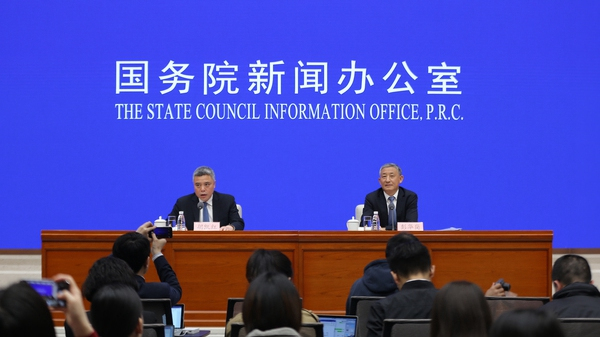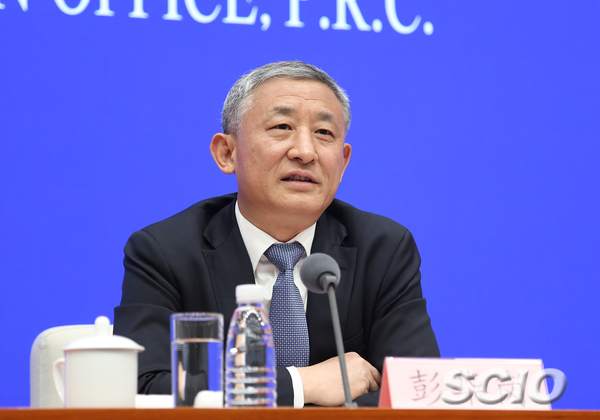
Economy
12:14, 16-Apr-2019
China's state asset regulator: Central SOEs register stable growth in Q1
Updated
09:04, 17-Apr-2019
CGTN
01:39

China's central state-owned enterprises (SOEs)
enjoyed a stable momentum in economic performance in the first quarter of this
year, said the state asset regular in a press conference on Tuesday.
In the first quarter of this year, the revenue of central SOEs totaled 6.8 trillion yuan (about one trillion U.S. dollars), a year-on-year increase of 6.3 percent. Total profits in the same period increased 13.1 percent year on year to 426.6 trillion yuan. In March alone, the revenue reached 2.6 trillion yuan, up 10.6 percent year-on-year, and the profit up 10.8 percent year on year, said Peng Huagang, the spokesperson of State-owned Assets Supervision and Administration Commission (SASAC).
The effective investment increased at a faster pace during the period. Central SOEs have realized 384.02 billion yuan of fixed asset investment (FDI), a year-on-year growth of 9.7 percent, 8.8 percentage points higher than the same period last year.

Peng Huagang, secretary general of SASAC / Source: SCIO
Peng Huagang, secretary general of SASAC / Source: SCIO
The oil and gas companies and petrochemical companies enhanced their investment in ensuring the natural gas supply and oil and gas development, with a year-on-year growth of 39.3 percent. Telecommunications companies continued to promote 5G research and development, with a year-on-year growth of 39.5 percent, Peng added.
"We focused on filling the shortboard, continued deepening supply-side structural reform and vigorously promoted high-quality development. These measures effectively improved the macro-economic environment," Peng said.
Mixed-ownership reform is quality-oriented
Meanwhile, mixed-ownership reform is carried out steadily. China is paying more attention to the quality and effect of the reform. Peng said the country will promote the transformation of the internal operating mechanism of the enterprise as well as the adjustment of ownership structure to make the business mechanism more efficient and flexible.
Efforts should be made in this aspect, including medium-and long-term incentives, professional management systems and the marketization and differentiation in salary, etc.
Central SOEs' contribute to the BRI
The second Belt and Road Forum for International Cooperation is scheduled to be held in China later this month. As for the engagement of central SOEs in Belt and Road Initiative (BRI), Peng said that these companies help promote the connectivity of infrastructure, the cooperation of international capacity and bring more job opportunities.
For example, the Karakoram Highway undertaken by China Communications Construction has improved the local traffic, revitalized local tourism resources, and cultivated a number of new industries such as retail and jewelry mining, said Peng.
(Chen Jiaye also contributed to the story.)

SITEMAP
Copyright © 2018 CGTN. Beijing ICP prepared NO.16065310-3
Copyright © 2018 CGTN. Beijing ICP prepared NO.16065310-3